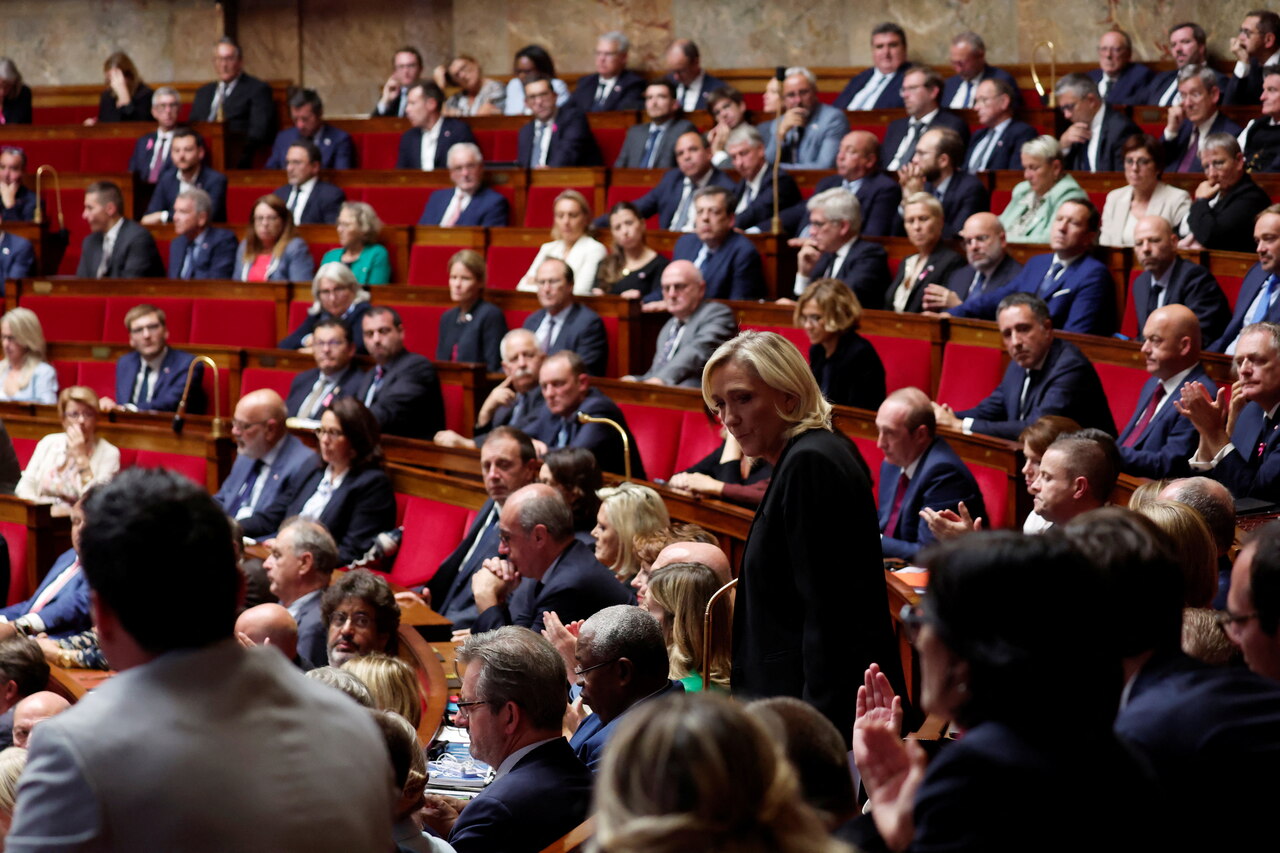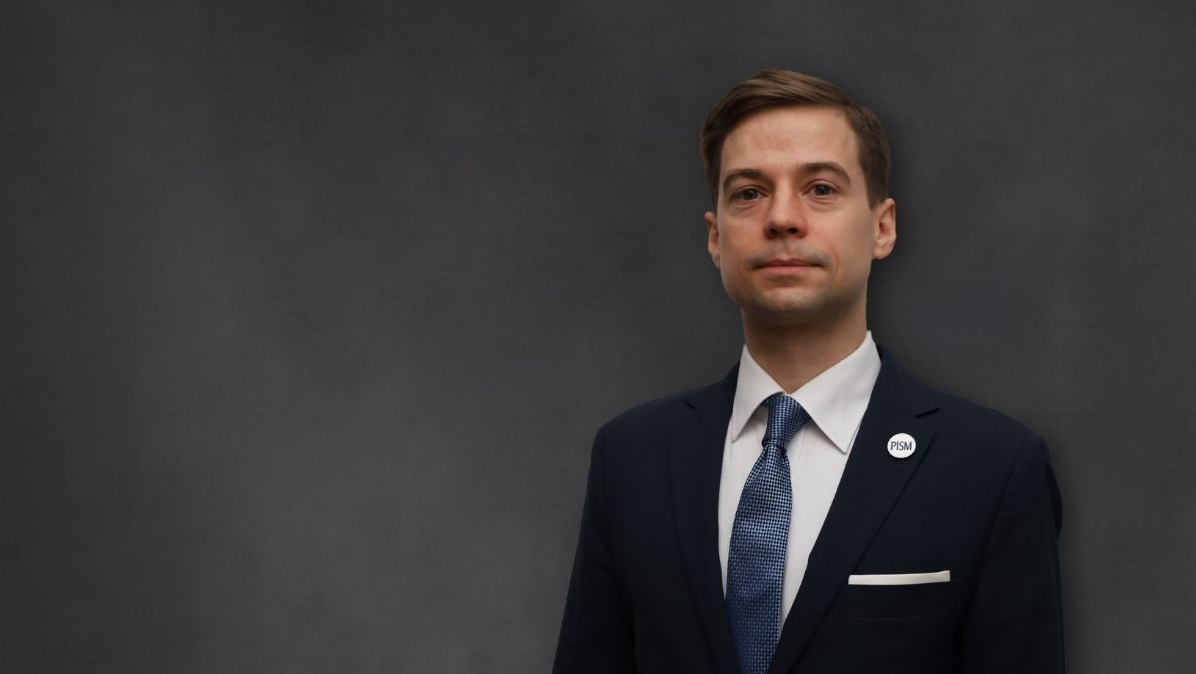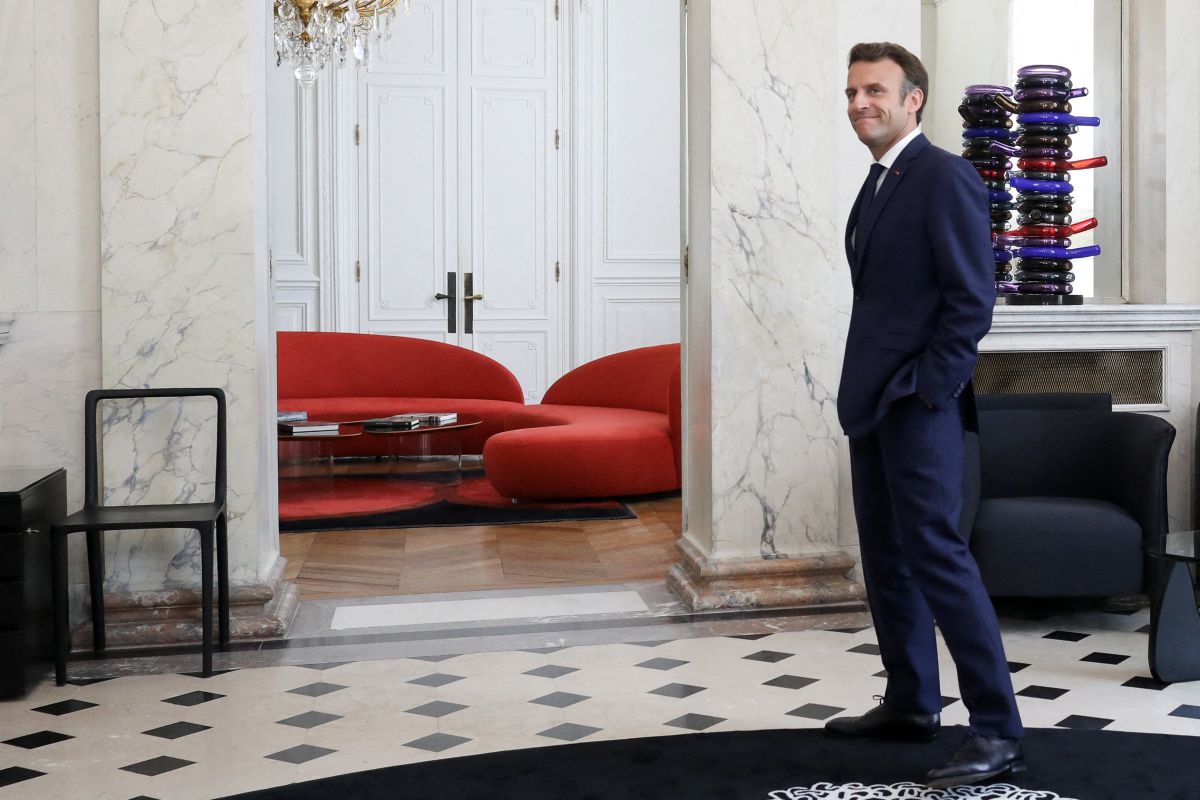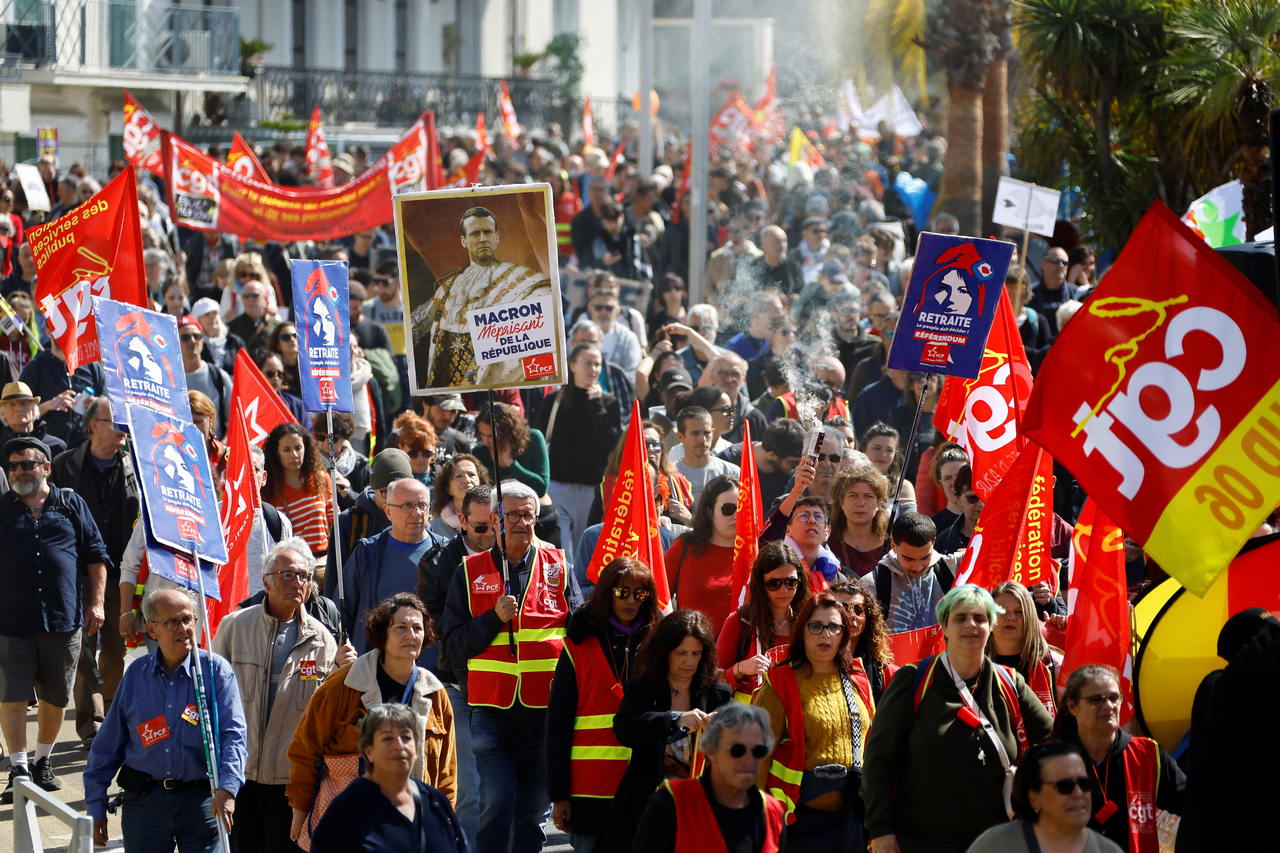Right Gains as French Political Parties Jockey Ahead of 2024 EP Elections
The European Parliament elections in June 2024 are likely to result in weakening support for the liberal centre in France. The government coalition’s ratings have been falling since last October, while those of the radical right-wing National Unity, which is slowly entering mainstream French politics, have increased. The strengthening of radical parties is detrimental to the EU because of their proposals to weaken the Community, their pro-Russian views, and their aversion to NATO.
 GONZALO FUENTES / Reuters / Forum
GONZALO FUENTES / Reuters / Forum
The upcoming elections to the European Parliament (EP) will be treated by French parties as a kind of U.S. mid-terms because they will be held in the middle of the incumbent president’s term and could indicate how voters view the overall direction of the country’s policies. France’s political scene is divided into three main political blocs: the liberal centre, which is formed by the ruling coalition (Renaissance, Horizons, and Democratic Movement), the left-wing NUPES bloc (France Unbowed, or LFI; the Socialist Party, or PS; Europe Ecology–the Greens, or EELV; and the Communists), and the radical-right parties National Rally (RN) and Reconquista.
France elects 81 out of 720 MEPs, the second-most after Germany. According to a November Ipsos Sopra Steria poll on the EP elections, French parties can count on the following levels of support: RN, 29% of the vote, the ruling coalition, 20%, the leftist NUPES bloc (they are running separately for the European elections) with EELV and PS at 10.5% each, LFI at 8.5%, and the Communists at 2%, while the right-wing Republicans would get 6.5% and the radical-right Reconquista 6%. The increase in support for radical forces and the weakening of the liberal centre are all the more evident if we compare them with the results of the 2022 parliamentary elections in which the current ruling parties received 38.6% of the vote (they have lost a combined 18.6 percentage points from the elections to the recent poll) and the RN recorded 17.3% (it has increased this total by 11.7 p.p.).
Situation of the Ruling Coalition
Since 2022, when French President Emmanuel Macron’s second term began, the ruling parties do not have an absolute majority in the National Assembly (AN)—they hold 251 of the 577 seats in the chamber. The ability to pass laws depends primarily on the Republicans (who have 62 seats). Key legislative bills are passed using a procedure under Article 49-3 of the French Constitution by which a law is considered to have been passed without a vote unless the assembly passes a vote of no confidence in the government within 48 hours (Prime Minister Elisabeth Borne has used this option more than a dozen times since the beginning of her term). The opposition criticises this on the grounds that it is undemocratic—the parliamentary majority votes in principle not for a specific law, but against the dissolution of parliament. The French public also views it similarly. According to an October Toluna Harris Interactive poll, more than two-thirds of respondents considered the adoption of laws in this way to be “undemocratic”. The decline in support for the ruling parties was sustained by the introduction of reforms increasing the retirement age, which were viewed negatively by most of the public, leading to demonstrations involving hundreds of thousands of people.
Leftist Bloc
The formation of an alliance of left-wing parties ahead of the 2022 parliamentary elections secured for NUPEs the second-highest electoral result, with the largest grouping in the coalition being the party led by Jean Luc Mélenchon, LFI, which holds 75 of the 151 left-wing seats in the AN. However, such a broad coalition is characterised by a number of differences in their programmes that affect the cohesion of the entire bloc.
At issue is the vision for the development of the EU: both the Socialists and Ecology-Greens have a federalist stance, while the Communists and LFI are opposed to further deepening integration. The Socialists also support the current EU treaties, which the Communists and LFI see as promoting economic neoliberalism. Mélenchon questions the supremacy of European law in selected cases, and advocates, among other things, for the non-application of EU law in selected cases, for example, in order to achieve ecological and social goals that are more important in his view.
A key difference remains the question of views on European international security issues. While the PS is in favour of France’s active participation in NATO, the LFI declares that it wants the country to leave the alliance. In addition, Mélenchon has repeatedly advocated a conciliatory policy towards Russia, calling for the lifting of sanctions, for example, while the Socialists and EELV are in favour of maintaining them. Recently, differences over Israel’s war against Hamas have gained prominence, with the LFI the only party in the bloc that has not unequivocally condemned the actions of Hamas nor described it as a terrorist organisation. This has led to the suspension of the Socialists’ participation in NUPES, although not to their withdrawal from the bloc.
Right-Wing Opposition
The radical right-wing RN continues to try to influence public attitudes and those of the other political parties towards its party. Leader Marine Le Pen is trying to change its image from that of an extreme party with anti-European and antisemitic elements to a mainstream party that is not opposed to the EU in principle and in whose ranks there is no room for hate language against Jews (National Rally MPs took part in a recent march against antisemitism, for example). It is an attempt to break the so-called cordon sanitaire—the principle in French political culture by which extreme parties should not be legitimised by allowing them to co-govern (the French political elite, even at the local level, do not enter into alliances with RN representatives).
After the 2022 elections, the RN achieved a record result (88 seats), which increased its state funding. Among other things, this allowed the party to repay a €6 million loan taken from a Czech-Russian bank, which was seen as a potential instrument of Russian pressure on the grouping. The views expressed by the RN coincide with those of the LFI in some cases—for example, the party advocates exiting NATO, maintaining a cautious policy towards Russia, and weakening the validity of EU legislation. In opinion polls, RN has gained support among the young, and respondents perceive the group’s deputies as competent and hardworking.
Conclusions and Perspectives
The RN’s high polling ahead of the EP elections is part of a Europe-wide trend of increasing support for the right. More support for radical parties in France in the elections will also mean a numerical weakening of the future coalition supporting the European Commission, and if polling trends continue, the majority in the EP will belong to the Christian Democrats, Socialists, and Liberals.
Conflicts in the left-wing camp could lead to the breakup of the united bloc and fragmentation of support for left-wing parties, which would translate adversely not only to its EP electoral outcome but also to the possibility of winning the presidency after Macron’s term ends in 2027. Such a breakup could lead to the marginalisation of left-wing parties, which would make the main political dispute during both the European elections and the 2027 presidential elections between President Macron’s liberal milieu and the far-right RN. Awareness of these consequences keeps the left-wing parties within NUPES despite significant differences in stances.
Breaking the cordon sanitaire maintained by the political elite is not going to happen anytime soon, as most French parties still consider Le Pen’s grouping to be extreme and dangerous to the French state, and the changes she is implementing are seen only as an image ploy. However, if the RN has successfully repositioned itself in the eyes of voters and the views characteristic of the grouping are introduced into the public debate as acceptable, it will be harder for French politicians to justify the need to treat the party differently.
Declining support for the liberal centre is detrimental to the EU because of the anti-European and pro-Russian views present among the radical parties (both the RN and the LFI). If they were to gain power in France, this could reduce the EU’s ability to act, as one of its largest members would then selectively apply Community law, undermining the cohesion of the Union, but would also lobby for an overhaul of relations with Russia, such as shattering the current consensus on the use of sanctions. From Poland’s point of view, the potential increase in support for these parties is particularly unfavourable given their views on the Russian aggression, advocacy of a reduction in military aid to Ukraine, and seeking to weaken trans-Atlantic ties and exit NATO.





.jpg)
